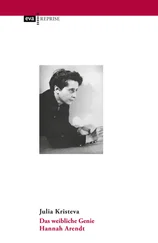I am overwhelmed by tiredness, I am surrounded by terror, and rest escapes me. I have just reread at leisure these memoires that I wrote in haste, and I have realized that, though it was utterly unintentional, I had in each line shown myself to be as unhappy as I really was, but also much nicer than I really am. Could it be that we believe men to be less sensitive to the depiction of our suffering than to the image of our charms, and do we hope that it is much easier to seduce them than it is to touch their hearts? I do not know them well enough and I have not studied myself enough to know the answer. But if the Marquis, who is credited with being a man of exquisite taste, were to persuade himself that I am appealing not to his charity but to his lust, what would he think of me? This thought worries me. In fact he would be quite wrong to attribute to me personally an impulse that is characteristic of all women. I am a woman, perhaps a little flirtatious for all I know. But it is natural and unaffected. 36
Paul lifts his head and looks at me.
“Have you any idea what she means?”
I don’t respond, that’s my role.
“A natural, unaffected woman? What’s that?”
Silence from me again.
“‘A woman dominated by hysteria experiences something infernal or divine.’ What do you make of that, Sylvia? Shall I go on? ‘Saint Teresa has said of devils, How luckless they are! They do not love.’” 37Paul carries on reading out his latest discoveries in the Pléiade edition of Diderot.
Now I’m in a fix. I can’t tell him about the conviction I have lately reached, which is that devils are inseparable from love, and that love, that is, God, goes hand in hand with its best enemy, the demonic, and that it’s impossible to free oneself from demons without freeing oneself from God, and hence from love. This doesn’t mean we must, or even can, eradicate love, whether diabolical or divine; that would be to castrate ourselves of our inner being and turn us away from the exterior world; it would deprive us of discovering, acting, wandering, journeying through the self. No, it means that it is possible to move through love indefinitely, infinitely, to make of love one’s infinity-point. An eclipse, a bedazzlement. Teresa, again. A serenity. Very hard to put into words. I try saying something:
“There’s no better Catholic than the devil.”
My allusion to Baudelaire falls flat, as expected. 38But that’s also a part of my role: to plant a seed for later, or never.
Paul’s not up to it yet. All of a sudden he’s not interested in me anymore. He carefully places the book on my desk and saunters off with an air of insouciance, crooning: “Depoooosuit…” He’s got perfect pitch, that boy! Suffering from psychomotor disharmony (another definition from his compensated autistic file), he needs love to screen his anxieties. He’s got to think of himself as a lady-killer, he has to charm the girls, as many girls as possible, in hopes of finding the very best, though even if he found her he’d keep on looking. He dreams about the idea, he plays on it, a lot; he very seldom tries it out. I wouldn’t be surprised if one day he took off from the MPH in pursuit of love and Love in an Indian ashram, a Jerusalem synagogue, a Roman church, a Venetian back street, a Chinese pagoda, why not? I wouldn’t be the one to stop him.
I wouldn’t stop anybody who felt that kind of need. Which includes each and every one of us when we feel excluded, forsaken, penniless, disabled, forgotten, erased, when we send the past to hell, or make a clean sweep of it, when we are sick of the nothingness of Nothingness…
Even me, I still dream of love, at my age! Not very often, of course, and only for a laugh.
And not today.
Today, writing to you, Mister Philosopher, after saying goodbye to Teresa, my love, I am faithless and lawless. Utterly available. Ready to listen to Paul with his perfect pitch, to Élise with her lavender flowers, and to all the rest. Ready to disappear into their sorrows and joys. A therapy, that’s what love is. Freud stretched it out on the couch, not without reading you first, and I’m continuing the experiment. God is Love, and we listen to Him. A different kind of humanity began to take shape with and after you, Mister Philosopher, as it did with and after my Teresa. Checkmate to God, to Love? For sure, but not right now. Otherwise, hello Apocalypse, Ground Zero, reproductive cloning, synthetic wombs, the works! Please, not that. I too stretch Love out and operate on it, and I do so inside myself as well, of course. Delicately, laughingly, yes, and starting over, playing it out in that eternal and infinite recurrence. I try. “And will we checkmate this divine King?” “¿Daremos mate a ese rey divino?” We’d be wrong to think “it was enough to know the pieces.” But this King (Love, in other words) “doesn’t give Himself but to those who give themselves entirely to Him.” “Pensó bastaba conocer las piezas para dar mate, y es imposible, que no se da este Rey sino a quien se le da del todo.” 39
We are not done rereading Teresa, are we, Mister Philosopher? If I have moved you to meditate afresh upon those dwelling places I recently revisited, I will have accomplished what I set out to do.
Yours in respectful complicity ,
Sylvia Leclercq
1. PRESENT BY DEFAULT
1. Gian Lorenzo Bernini (1598–1680), The Transverberation , in the Cornaro Chapel, Santa Maria della Vittoria, Rome.
2. Mary of Magdala has already foreshadowed the loss, absence, and reinvention of the body of love in the mystical experience: “I know not where they have laid him.” She says to Jesus, mistaking him for a gardener, “If thou have borne him hence, tell me where thou hast laid him, and I will take him away.” Jesus says to her, “Mary”; she answers, “Rabboni,” meaning “master” (John 20:13–16).
3. Life , 29:11–14, CW 1:251–3.
4. VI D , 2:4, CW 2:368.
5. IV D , 2:2, CW 2:323.
6. Jacques Lacan, Encore, The Seminar of Jacques Lacan , trans. B. Fink, book 20, On Feminine Sexuality, The Limits of Love and Knowledge 1972–1973 (London: Norton, 1999).
7. Stendhal, A Roman Journal , trans. and ed. Haakon Chevalier (New York: Orion, 1957), 133: “St Teresa is represented in the ecstasy of divine love. It is the most vivid and the most natural expression.…What divine artistry! What delight!”
8. Life , 6:4, CW 1:78–9.
9. Colette, The Vagabond , trans. Enid McLeod (London: Secker & Warburg, 1974), 158: “Femelle j’étais et femelle je me retrouve, pour en souffrir et pour en jouir.”
10. Francisco de Osuna: ca. 1492–ca. 1540.
11. Sigmund Freud, The Schreber Case , trans. Andrew Webber (New York: Penguin, 2003).
12. Life , 16:1–6, CW 1:147–50.
13. Michel de Certeau, The Mystic Fable , trans. Michael B. Smith, vol. 1, The Sixteenth and Seventeenth Centuries (Chicago: University of Chicago Press, 1992), 23.
14. Life , 40:8, CW 1:357.
15. Life , 26:5, CW 1:226.
16. Bernardino de Laredo: 1492–1540.
17. Life , 23:15, CW 1:207.
18. Pedro de Alcántara: 1499–1562.
19. John of the Cross, Ascent of Mount Carmel , book 1, part 3, section 1, trans. and ed. E. Allison Peers (Tunbridge Wells, Kent: Burns & Oates, 1983), 21.
20. Council of Trent, 1545–1563.
21. IV D , 1:7–14, CW 2:319–22.
22. IV D , 1:11, CW 2:321.
23. Letter 237, to María de San José, March 28, 1578, CL 2:46.
Читать дальше












